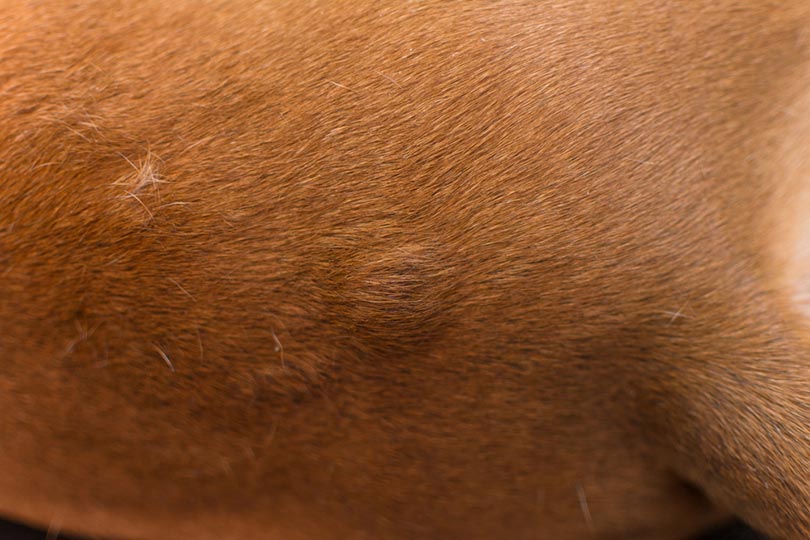Shih Tzu vs. Havanese: What’s the Difference? (With Pictures)
By Ashley Bates
Updated on
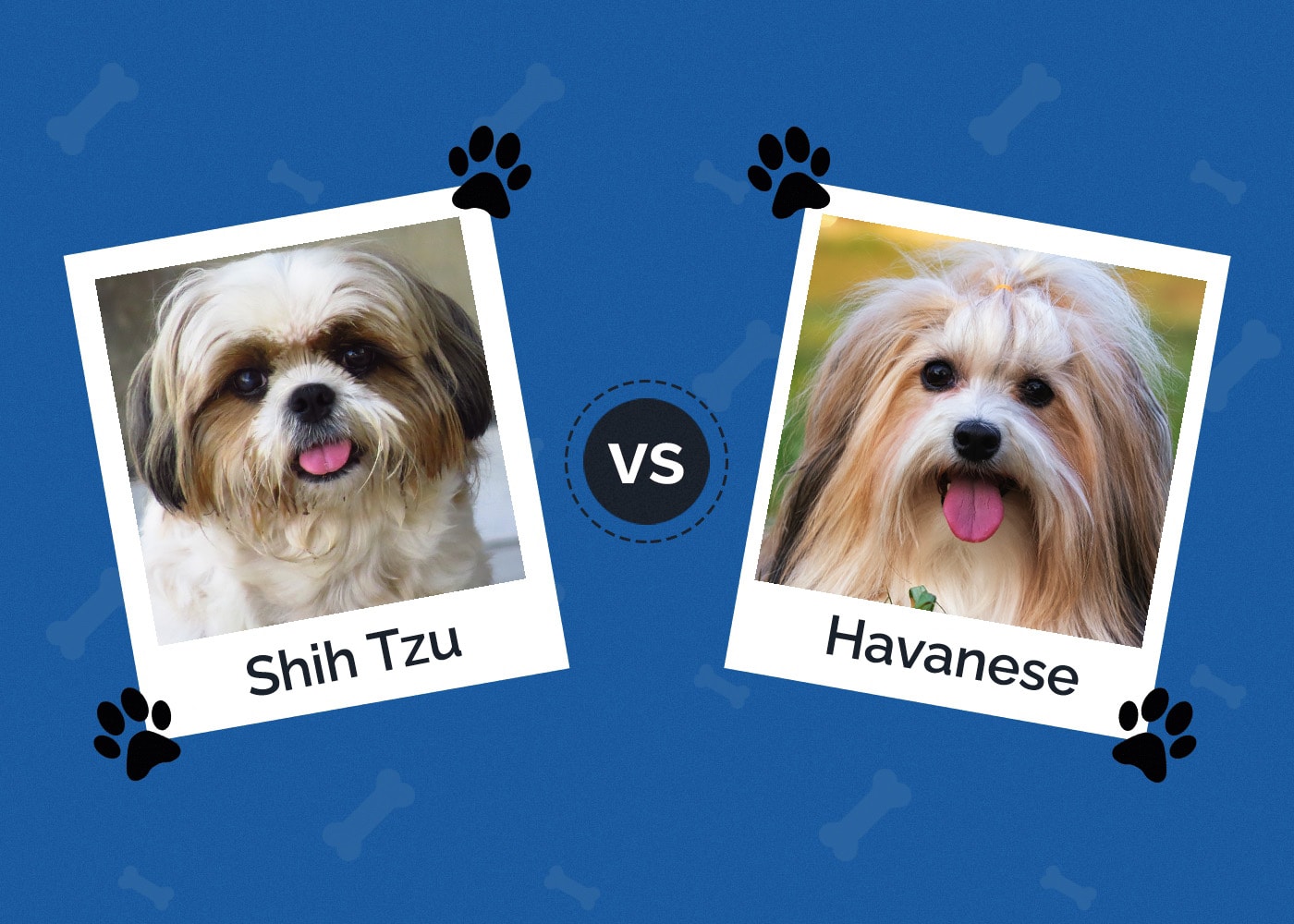
If you are interested in small long-haired dogs, you might’ve run across the Shih Tzu and Havanese. These adorable dogs have many positive characteristics and stunning hairdo possibilities. But what can you expect when you own one of these cuddly critters? We’re here to explain exactly what each of these breeds offers and which would suit different lifestyles best.
Visual Differences
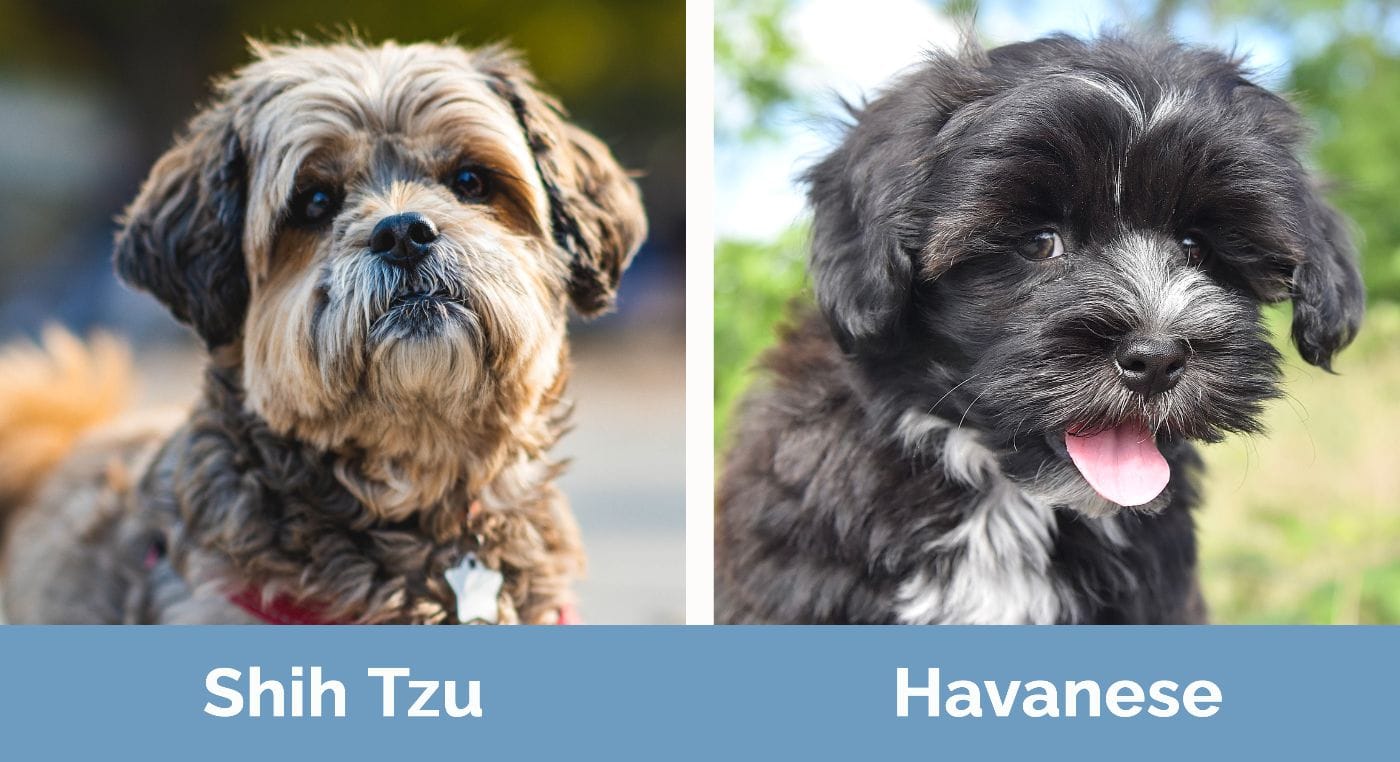
At a Glance
- Average height (adult): 8–11 inches
- Average weight (adult): 9–16 pounds
- Lifespan: 10–16 years
- Exercise: 1+ hours a day
- Grooming needs: High
- Family-friendly: Yes
- Other pet-friendly: Often
- Trainability: Happy-go-lucky, affectionate, outgoing
- Average height (adult): 8.5–11.5 inches
- Average weight (adult): 7–13 pounds
- Lifespan: 14–16 years
- Exercise: 30 minutes a day
- Grooming needs: High
- Family-friendly: Yes
- Other pet-friendly: Often
- Trainability: Intelligent, happy-go-lucky, loyal
Shih Tzu Overview
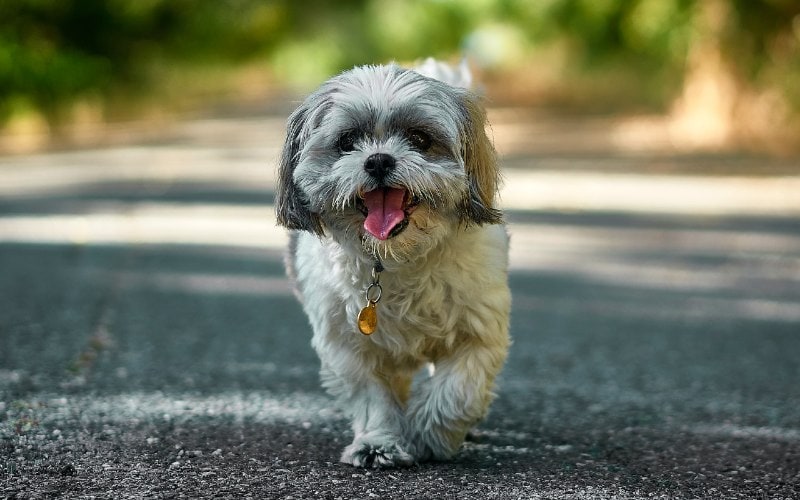
It is a common misconception that Shih Tzus came from China. The reality is that they came from Tibet. Original Shih Tzus were bred with pugs and Pekingese dogs to perfect the breed.
Personality / Character
Even though they are peppy small dogs, Shih Tzus tend to be very relaxed and calm. They bond well with one person but can be amiable with just about anyone. These little fluffs have very cheerful personalities and are intelligent to boot.
Shih Tzus are classic shadow dogs, willing to accompany owners anywhere. So, they make excellent emotional support animals. Also, their patience makes them ideal candidates for homes with younger children.
Shih Tzus that grow up with small children do better than later introductions. Make sure to socialize them well as puppies so they can adapt to a broad range of animals and people.
Training
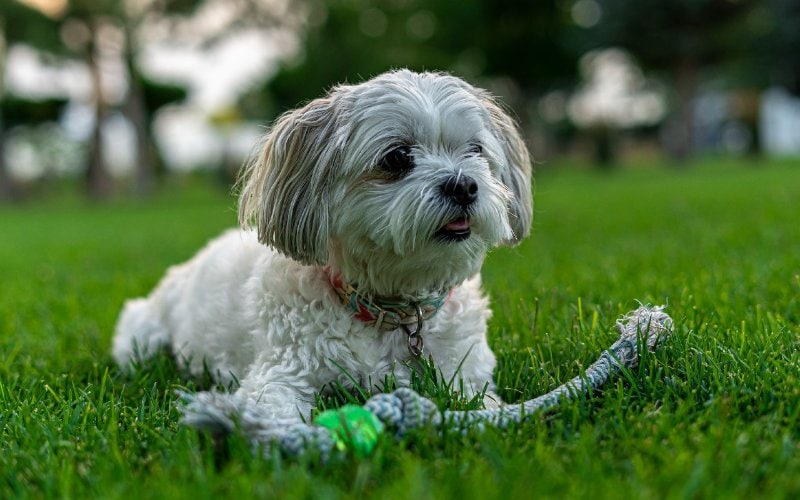
Because Shih Tzus are so connected to their owners, they’re relatively easy to train. You can teach them fun tricks, potty training, and other command-related tasks. While they can be stubborn, they are generally very agreeable and eager to please.
Some Shih Tzus can be a little difficult to potty train—so make sure you’re up for the challenge. Even though many do well, occasionally, one has quite a bit of trouble getting the hang of it. So, have patience if you choose this breed.
Health & Care
With proper breeding and regular vetting, Shih Tzus are generally a healthy small breed. However, there are certain conditions that the species are predisposed to. Here are a few.
- Breathing problems
- Cataracts
- Hip dysplasia
- Hypothyroidism
Appearance

Shih Tzus are a brachycephalic breed, meaning their snouts are shallow, and their eye sockets are wide. This gives the adorable, pushed-in face looked at so many people love. They can have very long hair if you let it grow out, so proper grooming is imperative to keep the coat tangle-free.
However, you can take them to the groomers to try out all sorts of hairdos and see which works best for your pooch. Shih Tzus have a classic aspect to their appearance. They have an underbite, making their bottom jaw stick out further. Arguably, this makes them even more comical and adorable.
Suitable for:
Shih Tzus can work well in various home situations—seniors, single folks, and growing families. However, due to their size, they work best in homes without aggressive larger pets that could potentially hurt them.
Havanese Overview
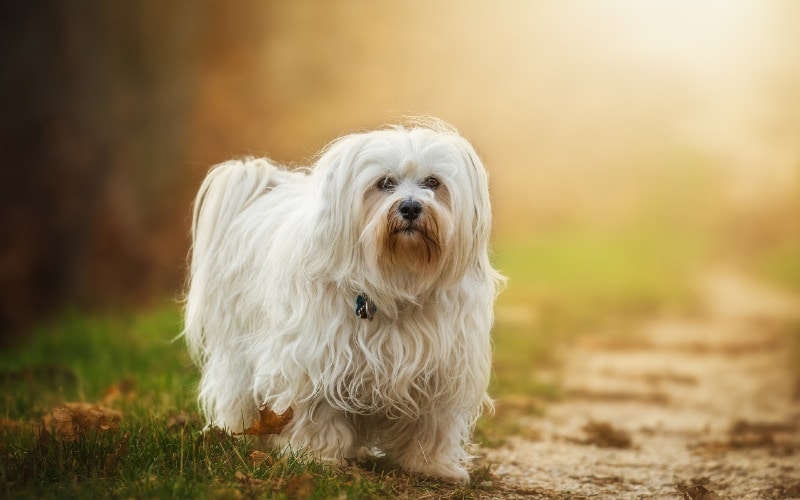
The origins of the Havanese can be traced back to the 1500s. Tenerife dogs traveled with Cubans into Mexico, greeting farmers and noblemen alike. They decided to turn these adorable little dogs into pets in Havana, further developing the Havanese we know and love. Today, The Havanese is recognized as a national dog of Cuba.
Personality / Character
If you ask around, owners might tell you that a Havanese is one of the best small breeds you can have for any lifestyle. They work for seniors, growing families, children with disabilities, single owners—you name it. These vibrant little dogs love adventure, so if you’re a family on the go, they’d love to tag along.
They tend to get along with other pets as long as the animals are not aggressive. While the Havanese does not mind playing nice with anyone, they will stand their ground if they feel threatened.
Exercise
A Havanese is a chipper little dog that requires moderate exercise. A brisk walk in the morning and evening is sure to suffice, and they love to play games with the people they love.
Training
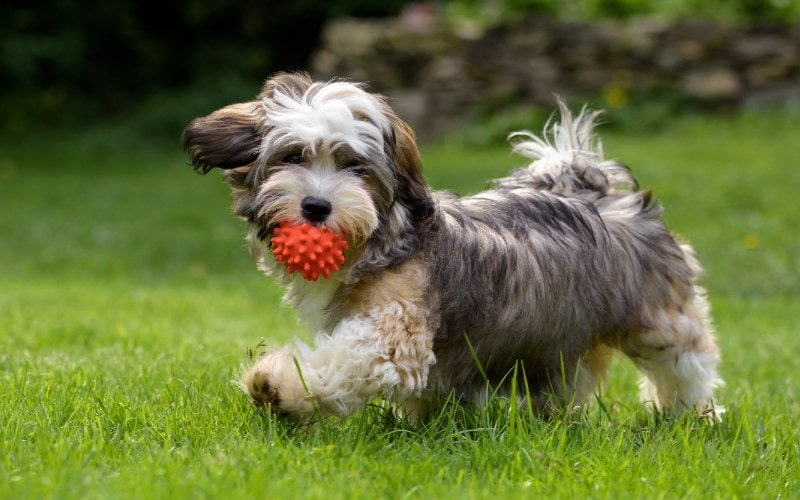
Some little dogs can be challenging to train because of their personality quirks and small bladders. Luckily, a Havanese is incredibly loyal, intelligent, and eager to please. This makes them a perfect candidate for general training.
Health & Care
The Havanese is a very hearty little dog, but it doesn’t come without its questionable genetic health concerns. Proper breeding and routine vet care are essential for any dog, including your Havanese.
Here are a few health conditions common in the breed:
- Luxating patella
- Cataracts
- Hip dysplasia
- Congenital portosystemic shunt
- Cherry eye
Appearance
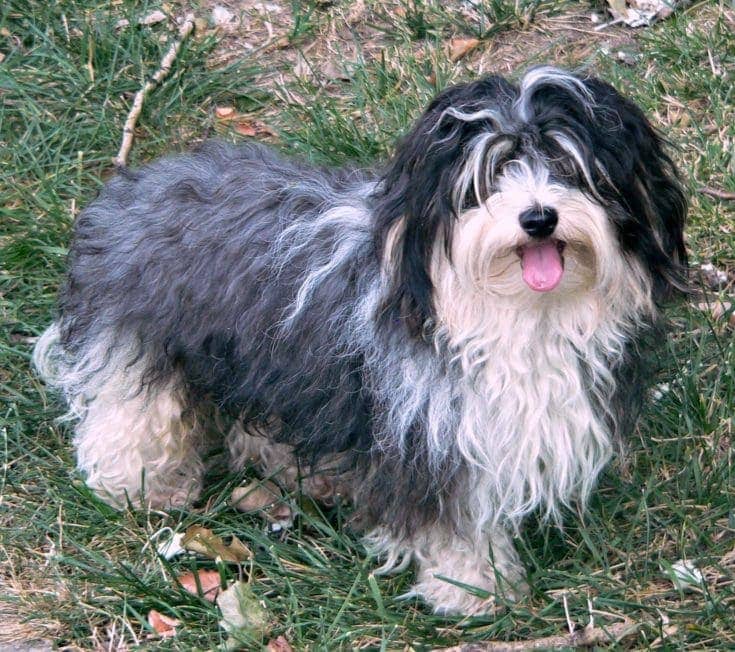
The Havanese is a long-haired dog that requires extensive grooming. The coat is silky and soft and can be curly, wavy, or straight. There are several grooming possibilities, from short cuts to cording. These small dogs have long bodies and short legs, but they’re not as close to the ground as dachshunds. Unlike the Shih Tzu, the Havanese have a normal-shaped snout with perky ears and a curved tail.
Suitable for:
The cheerful Havanese can work in any home situation. These spirited dogs seem to keep up with dogs of all sizes and households of any size.
Shih Tzu vs. Havanese Comparison
The Shih Tzu and the Havanese have many similarities. They are both roughly the same size and have similar temperaments. The Havanese are generally a little more peppy and ready for adventure than the Shih Tzu, although they both love to accompany owners anywhere.
The Shih Tzu is very comfortable relaxing on the sofa with its companions while the Havanese are ready to be on the go. Both dogs are very cheerful, happy, and terrific, with familiar faces and strangers alike.
The Havanese is more of a watchdog, notifying their owners of any newcomers. The Shih Tzu is a bit yappy—depending on the dog.
The Havanese usually pick up on things like house training relatively easily. Shih Tzus can be difficult to potty train, so they pose more of a challenge in this category. Both dogs require regular routine grooming. They can get lots of mats and tangles if you don’t brush them frequently and ensure they have a proper haircut.
Shih Tzus are brachycephalic, whereas a Havanese has a normally shaped snout. Not only does this change the appearance a little bit, but Shih Tzus tend to have more breathing issues because of the shape of their skull.
Which Breed Is Right for You?
Having a Havanese might be best for you if you’re a social person who loves interacting with all sorts of people and animals. This is especially true if your family is growing and you have little ones or older folks at home. Shih Tzus can blend with almost any lifestyle, but they gravitate toward certain people and sometimes prefer a lackadaisical environment. However, they can work amazingly well for folks from many walks of life. So, the best dog for you depends entirely on your preference.
Featured Image Credit: (L) Dienni Portinanni, Unsplash | (R) Sandra Huber, Shutterstock





